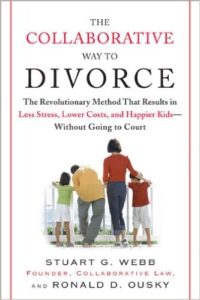The March 31, 2016 edition of the Tampa Tribune published a Letter to the Editor penned by Family Diplomacy Managing Attorney Adam B. Cordover on the newly signed Florida Collaborative Law Process Act (“CLPA”). You can find the Letter to the Editor below:
LETTER OF THE DAY: TAKING THE FIGHTING OUT OF DIVORCE
Recent bills passed by the Florida Legislature reforming alimony and changing child time-sharing laws have received a lot of attention, but something that has flown under the radar is the passage of the Collaborative Law Process Act (CLPA). Gov. Rick Scott signed the bill on March 24 after a seven-year effort by licensed mental health counselors, marriage and family therapists, psychologists and other family advocates.

The CLPA applies to divorce and other family law matters, and it creates a uniform system for the practice of collaborative law (also sometimes referred to as collaborative divorce, collaborative practice or the collaborative process).
The goal of collaborative law is to take the fighting out of divorce. Each spouse retains an attorney for the sole purpose of reaching an out-of-court agreement. Collaborative attorneys are barred from wasting any of the clients’ energy, time or money on opposition research, discovery motions or preparing for trial.
Collaborative law often involves a neutral facilitator with a mental health licensure. This is in recognition of the fact that divorce is not just a legal process, but it is predominately an emotional process. The facilitator helps parents learn to communicate and focus on what is most important to them, such as the health and welfare of their children.







 Stuart G. Webb & Ronald D. Ousky, The Collaborative Way to Divorce: The Revolutionary Method That Results in Less Stress, Lower Costs, and Happier Kids – Without Going to Court (Plume 2007).
Stuart G. Webb & Ronald D. Ousky, The Collaborative Way to Divorce: The Revolutionary Method That Results in Less Stress, Lower Costs, and Happier Kids – Without Going to Court (Plume 2007).